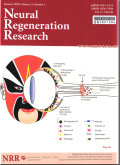Increased gene and protein expressions of the transient receptor potential vanilloid receptor 4 following sustained pure mechanical pressure on rat dorsal root ganglion neurons
摘要Dorsal root ganglion (DRG) neurons from newborn Wistar rats cultured in vitro were pressurized with 20, 40, 80 or 120 mm Hg compressive loadings (1 mm Hg = 0.133 kPa) for 12, 24, 48 or 72 hours, respectively. The 3-[4, 5-dimethylthiazol-2-yl]-2, 5-diphenyltetrazolium bromide test showed that pressures less than 80 mm Hg had no obvious impact on the activity of DRG neurons. The protein expression levels of transient receptor potential vanilloid receptor 4 (TRPV4), transient receptor potential vanilloid receptor 1, transient receptor potential channel of melastatin type 8, and transient receptor potential subtype ankyrin 1 were assessed by western blot analysis. The mRNA expression of TRPV4 was assessed by real-time PCR. The results showed that sustained mechanical compression up-regulated TRPV4 mRNA and protein expression in the rat DRG neurons, in a time-dependent fashion. Similar changes were not found in the protein expression of transient receptor potential vanilloid receptor 1, transient receptor potential channel of melastatin type 8, and transient receptor potential subtype ankyrin 1. Images of cells using a laser scanning confocal microscope showed that the sustained mechanical pressure increased the number of responsive DRG neurons and was synergistic on the enhanced Ca2+ responses to the TRPV4 phorbol ester agonist 4a-phorbol 12, 13-didecanoate and hypotonic solutions. These findings demonstrate that sustained mechanical compressive loading in vitro increases the expression of TRPV4 mRNA and protein in DRG neurons and sensitizes TRPV4 Ca2+ signals. Mechanical compression does not impact other ion channels in thetransient receptor potential family.
更多相关知识
- 浏览214
- 被引0
- 下载0


相似文献
- 中文期刊
- 外文期刊
- 学位论文
- 会议论文



 换一批
换一批 换一批
换一批



